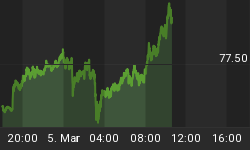As a Commercial Banker, I review financial statements of small to medium sized businesses and personal financial statements of the business owner/owners. And over the past 1-2 years I've noticed the beginning of what I believe will turn out to be a more serious issue for the economy.
Most small/medium sized companies are privately held by one person, maybe family members, or small partnerships. The affect is tight control over business decisions by one or two people. And for many years, the tax advice these owners have received is to take as much of the profitability out of the company during good years through increased Officer's Salaries to the owners and pay tax on that income on the personal tax return versus the corporate tax return because rates are typically lower on the personal side.
It's advice that sounds great, and since it was a one or two person decision it was usually taken by the owners. If only life were that simple.
-
Unfortunately, by taking out profitability, the net worth of the company was diminished significantly or remains low over years because there are very little retained earnings in the business. In essence, owners have been pulling as much cash out of their business for tax reasons. Unfortunately, once the money left the company, the after tax money on the personal balance sheet was usually spent to maintain or increase personal living standards.
During the go go business days that transfer of wealth from the company to the personal balance sheet got wasted by most on big cars, boats, toys, vacation homes, and moving up to the big home. I see very few business owners that saved that wealth for a rainy day.
-
On the other hand, the business owners who did have some personal wealth or rainy day fund, many have been spending that wealth to keep their business afloat. And while they had little wealth in the business, they had reserves on their personal balance sheet to inject back into the company.
Unfortunately, many business owners are depleting their personal net worth to the point where they won't be able to keep their business a float if the current environment persists.
In either case, small/medium sized businesses and their owners have very little reserves left to withstand a continuation of the current economic environment.
As a business fails and closes its doors, it usually does so owing vendors and their bank money. As they default on payments to vendors, those businesses will take losses on their financial statements too.
If their lucky, those vendors will have some net worth in their business to withstand the coming wave of business defaults. However, if the trend I see is as persistent as I think, many of these vendors will not be able to with stand a wave of bad debts in a low sales environment because their net worth has been depleted over the years as well.
This creates the domino affect in the small to medium size business community. As business A fails and can't payoff their vendor, then business B (vendor) could fail, and so on and so on because very few have built the kind of tangible net worth and liquidity to weather a prolonged economic storm.
As the "Dominos Fall", Business A may default on loans creating losses at their bank, lay off employees, and they will also fail to payoff vendors. Then the vendors, if they build multiple losses may fail which in turn will default to their bank, lay off people, and default to their suppliers. Thus, creating a spiral affect.
As the world turns, the domino affect of the small business failing will be persistent and spiral in its impact on:
A) Financing sources: The small to regional bank is a predominant lender to small and medium sized businesses. And these banks could see losses on business credit increase sharply this year. And, it could happen in conjunction with increased losses on commercial real estate loans. If so, expect to see the FDIC to close a lot of smaller banks and credit will continue to tighten. None of which is healthy for the economy.
B) Layoffs: Small to medium sized businesses in total account for a great deal of jobs and new job creation. If the Domino affect occurs, we should expect layoffs and a continued unemployment problem in this county, which ultimately impacts the very problems we have today with declining real estate values to lower tax receipts for local and state governments, which in turn spurn other issues.
C) The domino affect should also affect and ripple through small to medium sized businesses. Too many business owners focus solely on operations or profits, and very few understand the balance sheet (assets and liabilities and net worth) and how a poorly structured balance sheet can take them down, not from how profitably they are or aren't but how a failed client owing them money can put them out of business due to a lack of reserves, minimal working capital, or minimal wet worth.
Recently, I was snowing skiing and riding the lift chair with a general manager of a small sub-contractor company. We were discussing my notion of the domino affect. He stated, "He's already seeing the beginning of this occurring. Too many of his clients are stretching paying their accounts in time well past normal repayment time frames, and it's just a matter of when some of these clients fail and file Bankruptcy".
I expect to see this problem begin in the industry of contractors and then potentially spread to other industries. The process could take a while to gain traction in earnest mostly because the default and bankruptcy process takes a while and dominos fall one at a time. We'll probably see it more visibly in the second half of 2010 of the first half of 2011.
Hope all is well
















